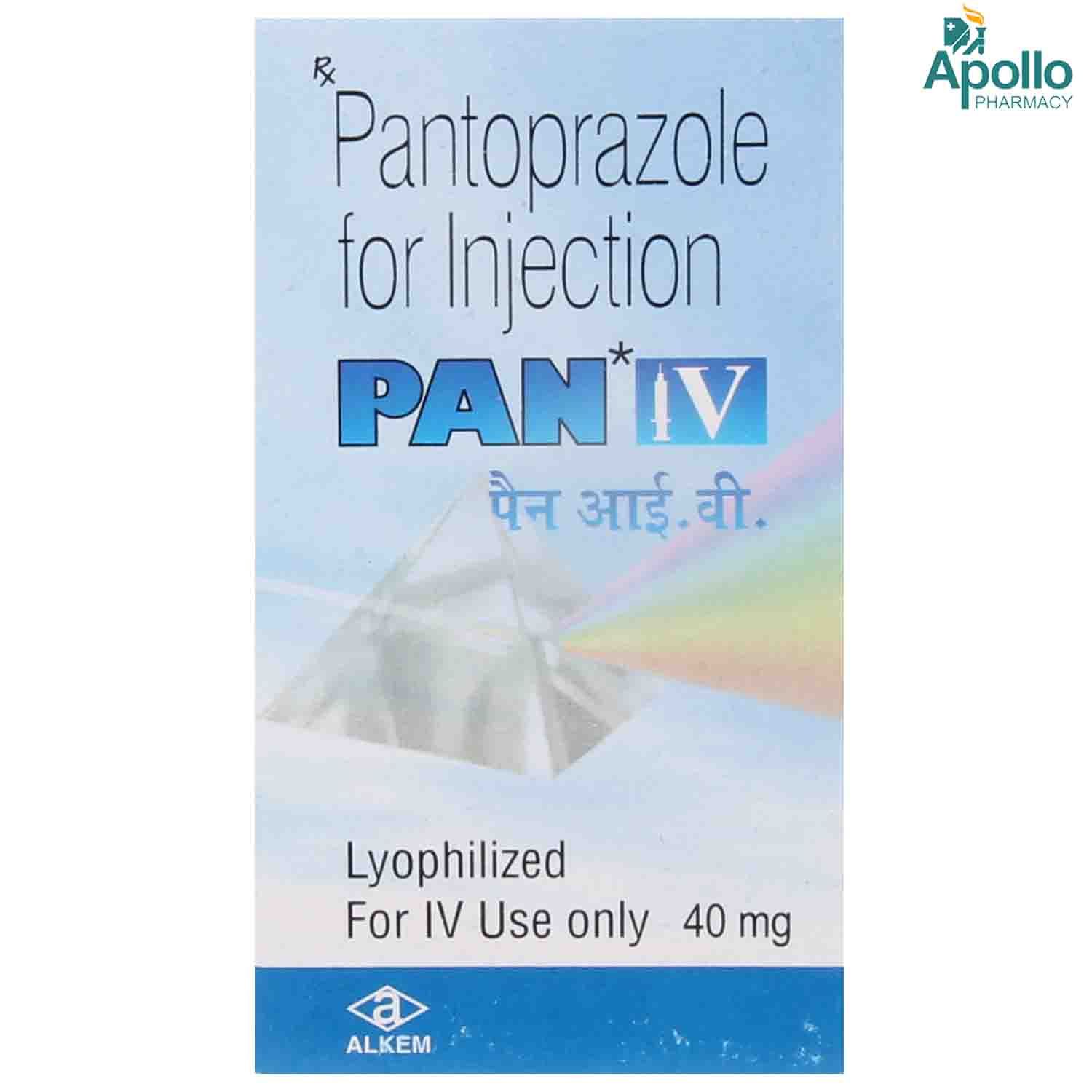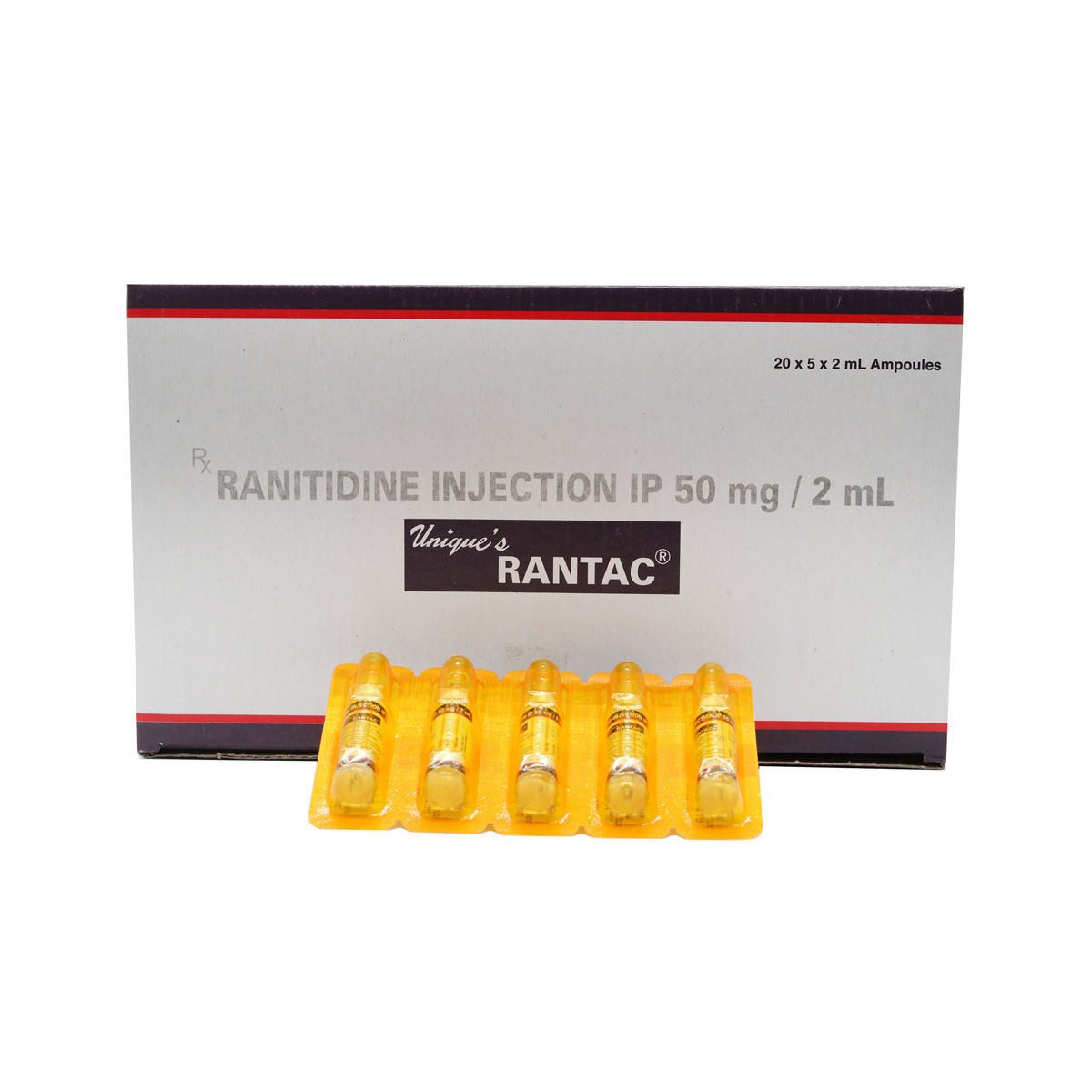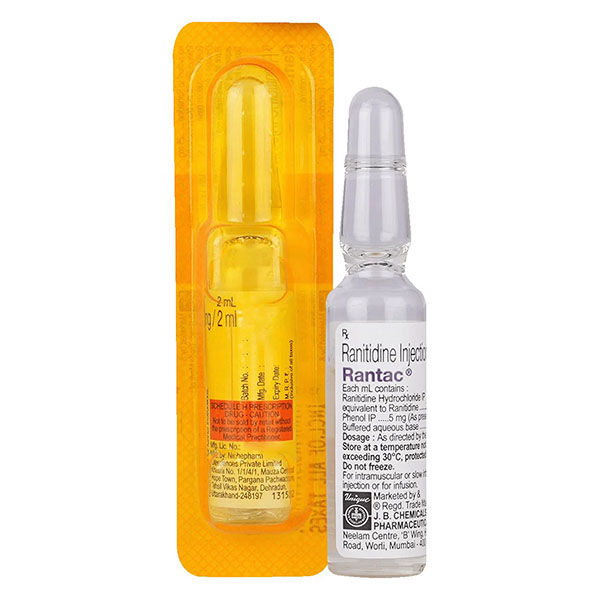- Home
- Health Condition
Injection For Gastric Problem
Injection For Gastric Problem
- Total Items (122)
 RX
RXPAN IV Injection 1's
₹51.30
MRP ₹57
10% off
 RX
RXPantop Injection 1's
₹45.60
MRP ₹57
20% off
 RX
RXPantocid Injection 10 ml
₹50.90
MRP ₹56.50
10% off
 RX
RXPantosec Injection 1's
₹45.20
MRP ₹56.50
20% off
 RX
RXRantac 50 mg Injection 5 x 2 ml
₹31.70
MRP ₹36
12% off
 RX
RXRantac Injection 5 x 2 ml
₹31.70
MRP ₹36
12% off
 RX
RXPerinorm Injection 10ml
₹32.90
MRP ₹36.50
10% off
 RX
RXBipaz 40 mg Injection 1's
₹50.85
MRP ₹56.50
10% off
 RX
RXBibonate 8.4%W/V Inj 100Ml
₹137.70
MRP ₹153
10% off
 RX
RXArkapan-40 mg Injection 1's
₹44.98
MRP ₹49.98
10% off
 RX
RXEnjaypan-40 Injection 1's
₹44.55
MRP ₹49.50
10% off
 RX
RXEsclock-40 Inj
₹287.10
MRP ₹319
10% off
 RX
RXES-Kulgut 40 mg Injection 1's
₹323.60
MRP ₹359.50
10% off
 RX
RXClopan 40mg Injection 1's
₹44.55
MRP ₹49.50
10% off
 RX
RXG2K 40mg Injection 1's
₹44.98
MRP ₹49.98
10% off
 RX
RXEsval-40 Injection 1's
₹117
MRP ₹130
10% off
 RX
RXEszomed-40 Injection 1's
₹134.10
MRP ₹149
10% off
 RX
RXEsmorac-40 Injection 1's
₹135
MRP ₹150
10% off
 RX
RXEsmogold-40 Injection 1's
₹139.50
MRP ₹155
10% off
 RX
RXEsoblis-40 Injection 1's
₹121.50
MRP ₹135
10% off
 RX
RXEsomate 40 Injection 1's
₹99
MRP ₹110
10% off
 RX
RXEsodof-40 Injection 1's
₹99
MRP ₹110
10% off
 RX
RXEsolax-40 Injection 1's
₹251.10
MRP ₹279
10% off
 RX
RXHiipan 40 mg Injection 1's
₹42.12
MRP ₹46.80
10% off
Injection for Gastric Problem
Gastric problems such as acid reflux, peptic ulcers, and gastroparesis are common conditions that can cause discomfort, pain, and disruption to daily life. While many people manage these issues with oral tablets or lifestyle changes, there are situations where these approaches may not be effective or suitable. In such cases, injection for gastric problem offers a faster, more targeted treatment alternative. In this guide, we will explore how injections for gastric problem work, when they are used, the different types available, their benefits, and how to use them safely.
Types of Injections for Gastric Problem
There are several categories of injection for gastric problems, each addressing different causes and symptoms of gastrointestinal distress. Here are the main types:
1. Proton Pump Inhibitors (PPIs)
Proton Pump Inhibitors, commonly referred to as PPIs, are among the most frequently used injections for gastric problems related to excessive stomach acid. These medications work by blocking the proton pumps—specialised enzymes in the stomach lining responsible for producing gastric acid. By inhibiting these pumps, PPIs significantly reduce the amount of acid produced, allowing damaged tissues in the stomach and oesophagus to heal.
Injectable forms of PPIs, such as pantoprazole and esomeprazole, are often administered in hospital or acute care settings. They are particularly useful in treating conditions like erosive oesophagitis, where the oesophagus is inflamed and irritated due to acid damage. Additionally, these injections are used to prevent rebleeding from peptic ulcers, a potentially serious complication that requires rapid acid suppression.
2. H2 Receptor Antagonists
H2 receptor antagonists represent another important class of injections for gastric problems focused on reducing stomach acid production, though through a different mechanism than PPIs. These drugs work by blocking histamine receptors (H2 receptors) on the stomach lining cells, which play a key role in signalling acid secretion.
Common injectable H2 blockers include famotidine and cimetidine. They are frequently used to manage conditions such as gastroesophageal reflux disease (GERD), stress-related gastric ulcers, and Zollinger-Ellison syndrome, where acid production is abnormally high.
3. Prokinetic Agents
Prokinetic agents are a category of injection for gastric problems aimed at improving the movement and emptying of the stomach. These are particularly beneficial in patients suffering from gastroparesis, a condition where the stomach empties food too slowly, causing symptoms such as nausea, bloating, early satiety, and vomiting.
Metoclopramide is the most commonly used injectable prokinetic agent. It works by stimulating the muscles of the stomach and intestines to contract more effectively, thereby accelerating gastric emptying and reducing discomfort. Besides its prokinetic action, metoclopramide also has anti-nausea properties, making it a versatile injection for managing both motility and vomiting associated with gastric problems.
4. Antispasmodics
Stomach and intestinal cramps can be extremely painful and distressing. Antispasmodic injections are used to relax the smooth muscles of the gastrointestinal tract, thereby relieving spasms and reducing pain.
One of the commonly used antispasmodic injections is hyoscine butylbromide, known widely by its brand name Buscopan. This medication works by blocking the action of acetylcholine, a neurotransmitter that causes muscle contractions in the gut. By relaxing these muscles, hyoscine butylbromide helps ease cramps, discomfort, and colicky pain often associated with gastric problems such as irritable bowel syndrome or gastritis.
5. Botulinum Toxin Injections
Though not routinely used as first-line treatment, botulinum toxin injections have found a role in managing severe, refractory gastric problems, particularly gastroparesis. Botulinum toxin, commonly known for its cosmetic uses, works here by temporarily relaxing the muscles of the pyloric sphincter—the valve controlling the passage of stomach contents into the small intestine.
In patients with severe gastroparesis, the pyloric sphincter may be excessively tight or dysfunctional, slowing gastric emptying and worsening symptoms. Injecting botulinum toxin into this muscle can help relax it, facilitating improved stomach emptying and symptom relief.
Because of its specialised nature, botulinum toxin injections are typically administered under the care of a gastroenterologist or specialist and are considered only when other treatments have failed.
Benefits of Injection for Gastric Problem
Opting for an injection for gastric problem can provide several benefits over traditional oral medications:
- Rapid Relief: Injections act faster than tablets or capsules, which need time to be digested.
- Useful in Emergencies: Ideal when patients are vomiting, unconscious, or unable to take medicines by mouth.
- More Accurate Dosing: Helps deliver precise medication directly into the bloodstream.
- Improved Effectiveness: Bypassing the digestive tract may lead to better absorption and therapeutic results.
- Versatile Use: Suitable for use in hospital settings, during surgery, or in intensive care situations.
Dosage & Usage Instructions of Injection for Gastric Problem
The administration of any injection for gastric problem must always be supervised by a healthcare professional. The correct dosage, frequency, and method of administration (e.g., intravenous, intramuscular) depend on the individual’s condition, age, and response to treatment.
Do not attempt to self-administer unless specifically trained and advised by a doctor or nurse. Some injections are meant only for clinical use, while others may be used at home under strict medical guidance.
Buy Injection for Gastric Problem Online at Apollo 24|7
If prescribed, you can purchase trusted and approved injection for gastric problem formulations via Apollo 24|7. The platform offers genuine medications, home delivery, and even online consultations to help you manage your gastric health with ease. Apollo also provides a range of stomach care treatments and essential information about each product, helping patients make informed choices under medical supervision.
Frequently asked questions
An injection for gastric problems is used to treat conditions such as acid reflux, ulcers, nausea, and delayed stomach emptying, especially when oral medication is not feasible.
Injections are ideal during emergencies, severe vomiting, or when fast relief is needed. They are also used when patients cannot swallow or absorb medications properly.
Yes, when administered by healthcare professionals, they are safe and effective. However, like any medication, they can have side effects and should be used with caution.
No. All types of injection for gastric problems require a valid prescription and should only be used under medical supervision.
Most injections begin working within 15 to 60 minutes, offering quicker symptom relief than oral medications.
